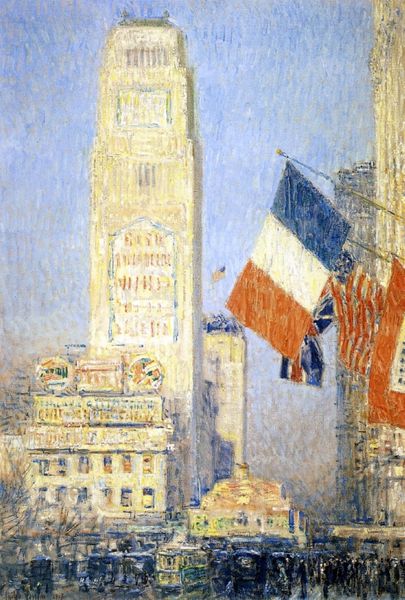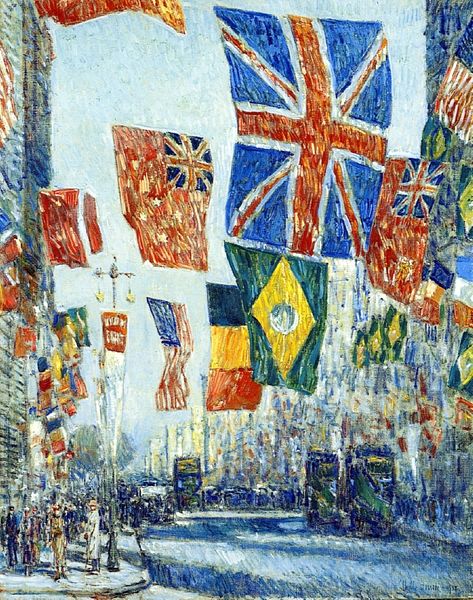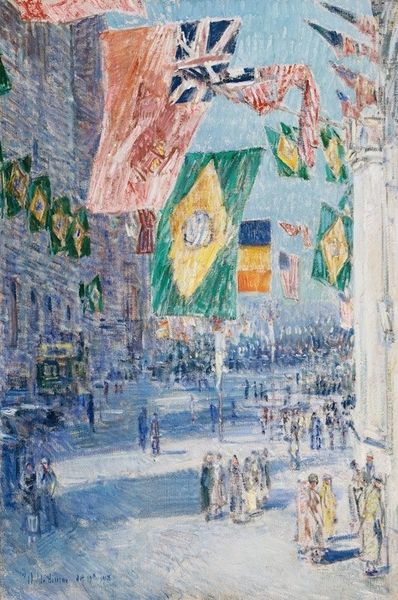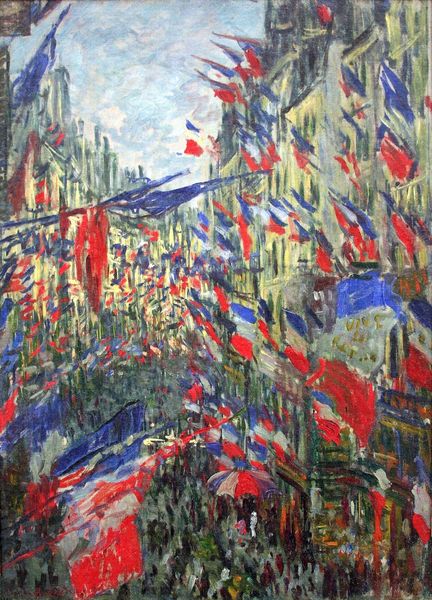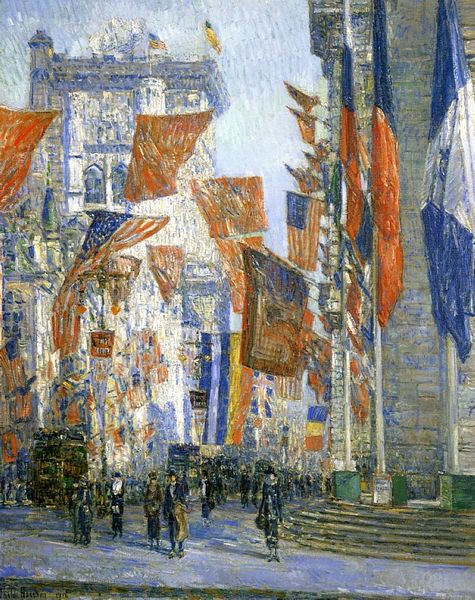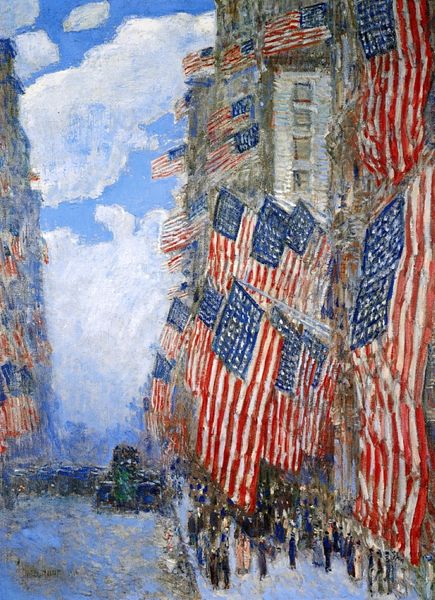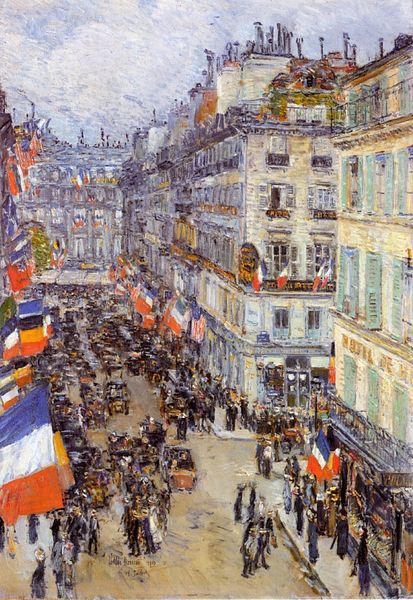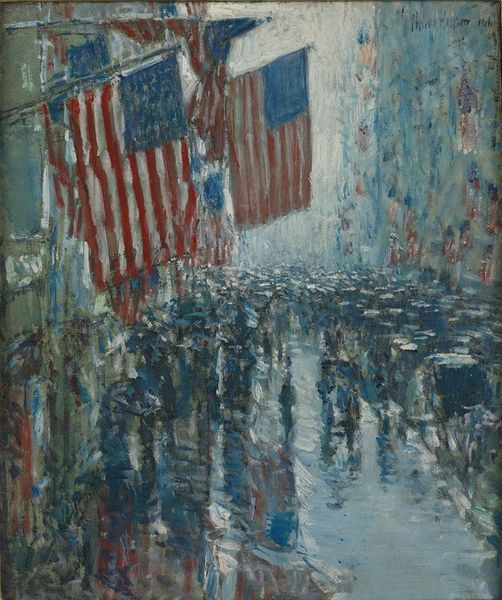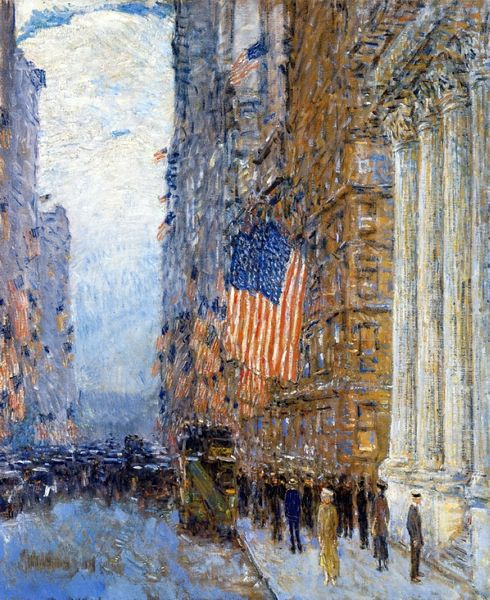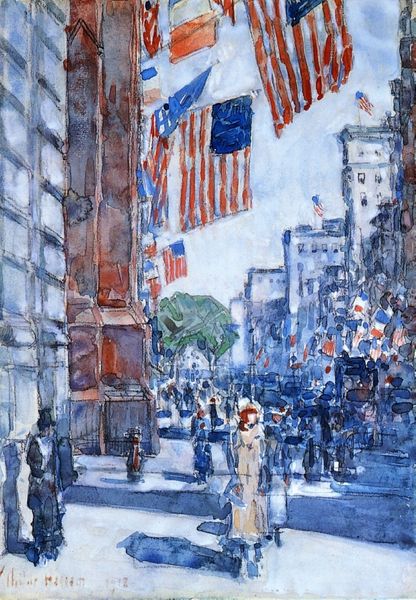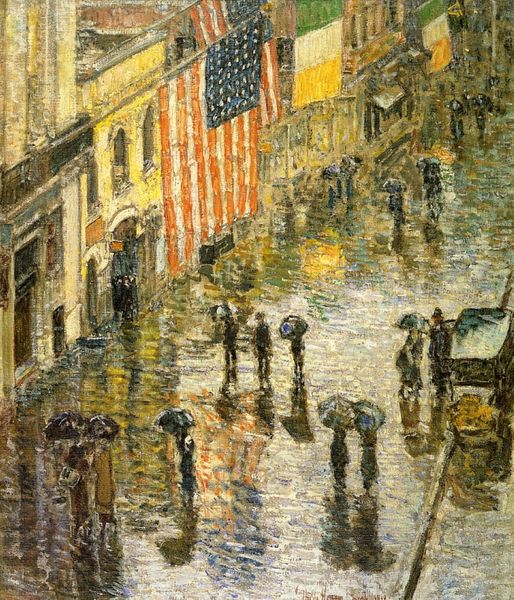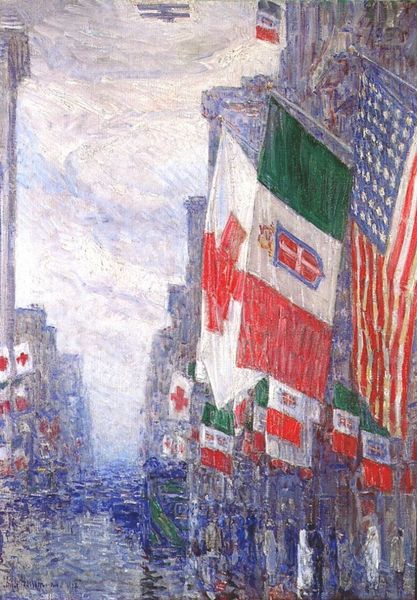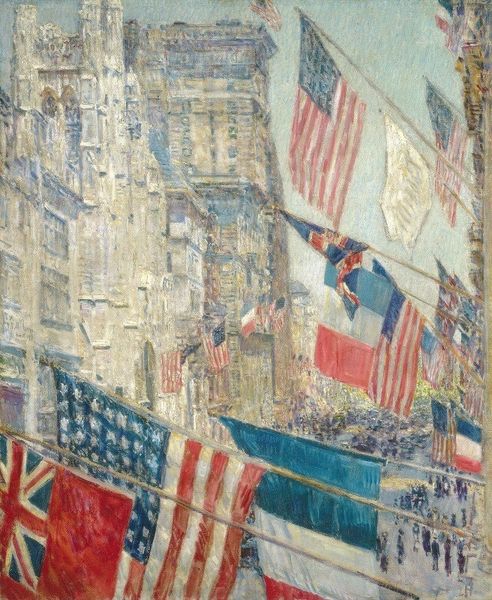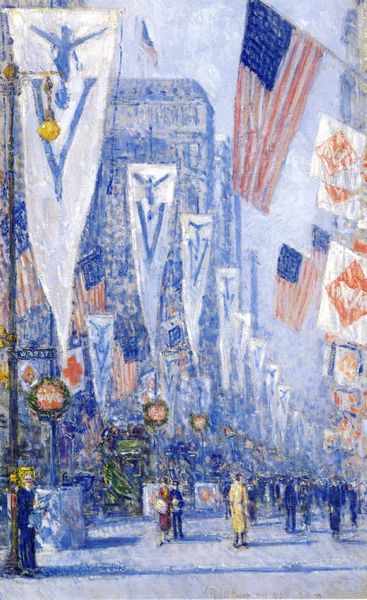
Copyright: Public domain
Editor: So, this is Childe Hassam’s "Avenue of the Allies," painted in 1917 using oil on canvas. There's this incredible sense of energy in the street scene, almost like a celebration with all the flags waving. What stands out to you the most when you look at this? Curator: It’s striking how Hassam captures the fervent patriotism of the era. Beyond just a pretty cityscape, the "Avenue of the Allies" reveals a complex interplay between national identity, propaganda, and public sentiment during World War I. The flags themselves become symbols of a collective effort, but also markers of exclusion. Who is being represented here and who is not? How does this imagery contribute to a dominant narrative of wartime unity, and perhaps silence dissenting voices? Editor: That's interesting. I hadn’t considered the silence you mentioned. Is there something problematic with this painting? Curator: The visual emphasis on Allied flags, especially American, British, and French, highlights the dominant powers. But where are the voices and flags of colonized people, whose resources and labor were crucial to the Allied war effort? It urges us to reflect on the complex legacy of WWI. It encourages us to interrogate how nationalistic fervor often overshadows the struggles and sacrifices of marginalized communities. It is important to reflect and to understand the political discourse of the time. Editor: That makes me think about how historical context shapes our understanding of art. Looking at it now, with the knowledge of post-colonial studies, gives a whole new layer of meaning. Curator: Exactly. This painting invites us to consider the power dynamics embedded within seemingly celebratory displays of nationalism and reflect on how art can both reflect and reinforce those dynamics. Editor: I'm walking away with a completely new perspective. Thanks. Curator: It's a testament to art's enduring power, even a century later, to provoke critical dialogues about history, identity, and social justice.
Comments
No comments
Be the first to comment and join the conversation on the ultimate creative platform.
